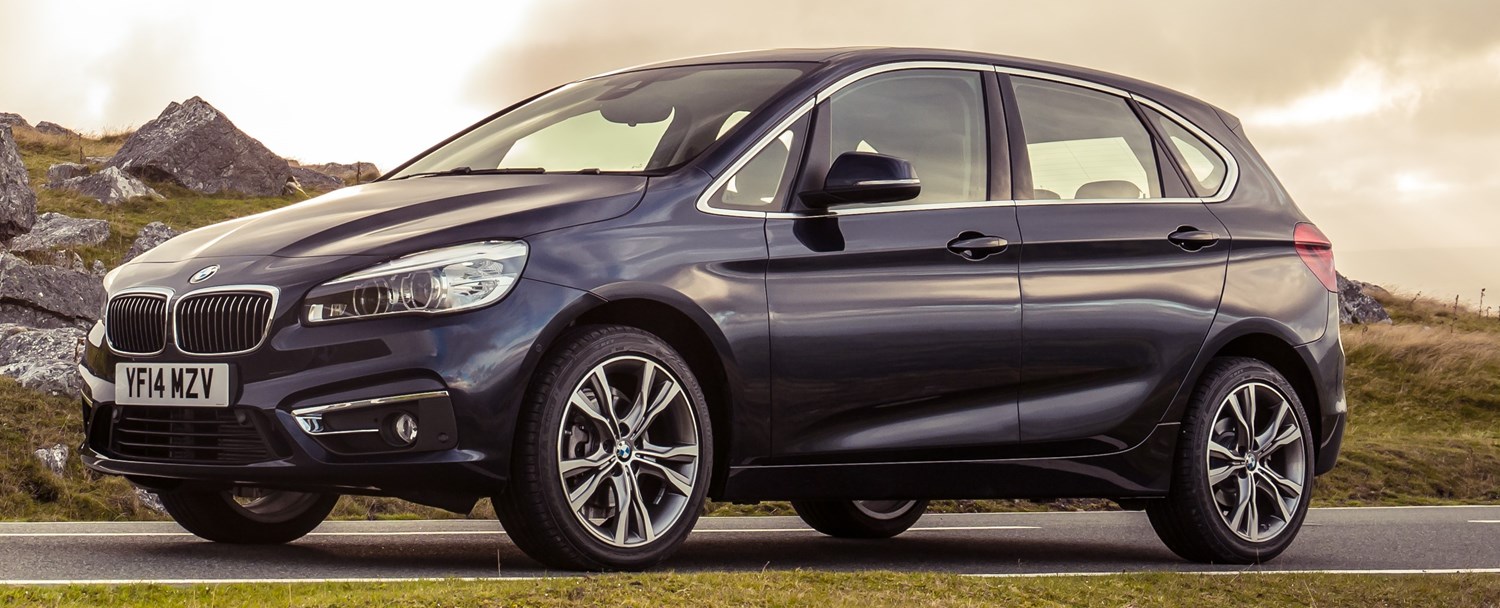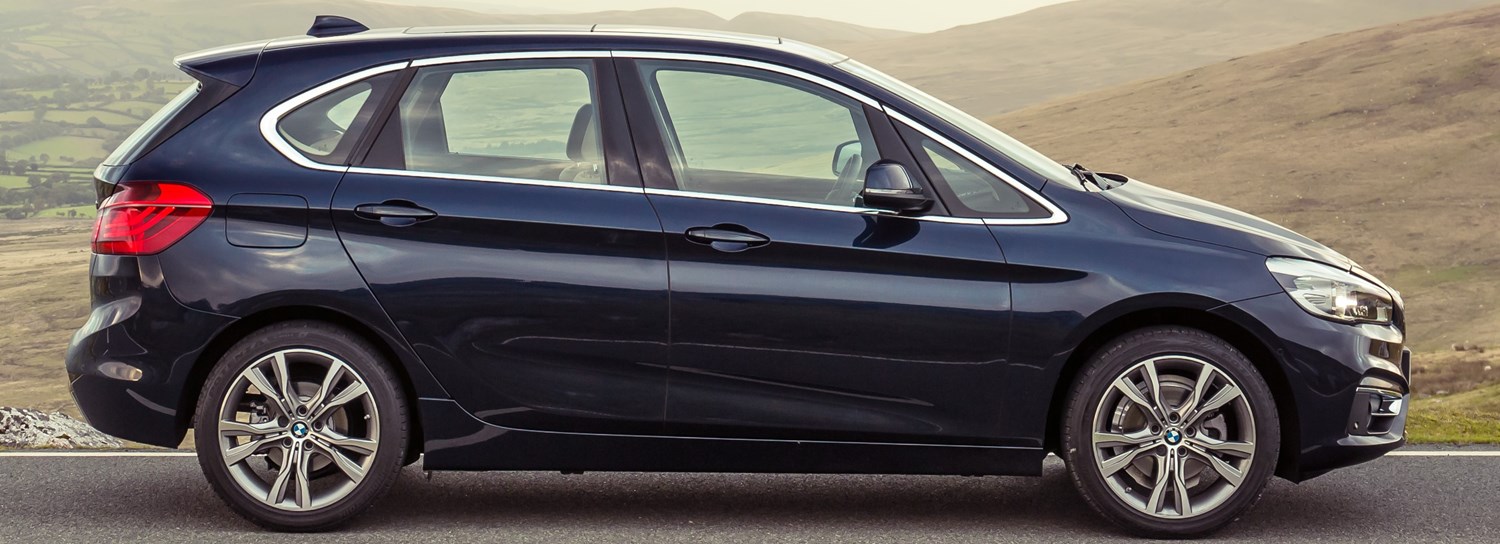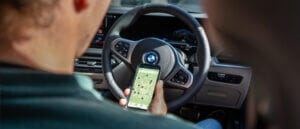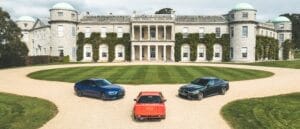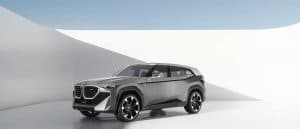Space and practicality
The 2 Series is the size of an ordinary small family car – the 1 Series on which it's based is a rival with the Volkswagen Golf and Ford Focus – so there's not a great deal of room available.
Most cars in that class use front-wheel drive in order to maximise cabin space, but the 2 Series is rear-wheel drive and some of the room that would be used in the cabin is taken up by machinery like the prop shaft and differential. Tie that in with the fact it has a plunging rear roofline (at least on the coupe) and you're not looking at a car with a great deal of room inside.
There's only two seats in the back and neither is much use for adults, at least for longer journeys. Access is also terribly difficult, as with any two door car. The boot is decent though, at 390 litres, but again access is the issue.
The boot opening is much smaller than the 1 Series hatchback, and taller items will simply not fit. The convertible roof eats into the space too, reducing it to 280 litres on those models. While the same things apply about access, for raw space it's not too far behind any normal family hatchback.
The 2 Series has never been tested by EuroNCAP so its safety rating is not wholly clear. However the 1 Series on which it's based received five stars when tested in 2012, scoring particularly well in the safety assist and adult and child occupant categories.
Engines
BMW uses a selection of its 'Twin Power' turbocharged engines, both diesel and petrol, in the 2 Series, with three, four and six cylinder variations.
The entry-level unit is a 1.5-litre, three-cylinder petrol that you'll also find in MINI vehicles. Badged as the 218i, its 134hp is enough to push the 2 Series to 60mph in 8.6s (9.2s for the heavier convertible) on its way to a top speed of 130mph. Depending on your specification, it's good for a combined fuel economy of up to 52.3mpg (48.7mpg for the convertible) and 125-139g/km CO2.
Above this is the 2-litre, four-cylinder petrol of the 220i. With 181hp it's notably quicker, hitting 60mph in 6.8s in the coupe and 7.3s in the convertible, but the combined fuel economy is still 43.5-47.1mpg depending on body style and specification. CO2 ratings are 138-149g/km.
A 230i model is also available, using a higher-output version of the same engine. At 248hp, this accomplishes the standard 60mph sprint in 5.6s (5.9s for the convertible) and is limited to a top speed of 155mph. The convertible rates at 41.5mpg combined and 155g/km CO2, while the coupe is slightly more frugal at 44.1mpg and 147g/km.
The only diesel option is a 2-litre four-cylinder, but it comes in a number of different versions.
In the 218d, it's a 148hp engine, with up to 65.7mpg in the coupe and 61.4mpg for the convertible, depending on trim. Top speed is, like the 218i petrol, around 130mph, but it's quicker to 60mph with the clock stopping at 8.2s or 8.7s if you pick the cabriolet.
Despite extracting more power for the 220d version, the fuel economy stays the same. 187hp is enough to shave 1.3s from the 60mph sprint time, and top speeds are now 140mph in the convertible and 143mph for the coupe.
This version also underpins the xDrive models, available in coupe form only. With the four-wheel drive system there's another 0.2s gain for the 60mph time, but economy suffers a little – though 62.8mpg combined is hardly poor.
That leaves the 221hp version, badged as the 225d. Again, this is exclusively available in the coupe, but will hit 60mph in six seconds flat, topping out at 151mph. The fuel economy is slightly down, to 61.4mpg, but CO2 ratings are still just 121g/km, which keeps the road tax low.
The M240i is powered by a three-litre, six-cylinder petrol engine with 335hp, which brings the 60mph sprint under five seconds in either body style, and both are limited to 155mph. Emissions and economy are notably worse, at 179g/km CO2 and 36.2mpg for the coupe, and 189g/km CO2 and 34.0mpg in the convertible.
Although the M2 also uses a three-litre, six-cylinder petrol, it's actually a different design from the M240i. Available in the coupe only, the M2 has 365hp, bringing the 60mph time to just 4.3s. 33.2mpg and 199g/km CO2 is the price you pay for the extra performance.
Running costs
Keep it at the lower end of the 2 Series range and you'll find the running costs to be rather impressive.
The diesel cars naturally win for day-to-day costs, as all rate over 60mpg and all fall into the £160 road tax band. Beware the insurance costs of the higher output versions though, as although the thoroughly acceptable 218d sits in group 20 (as does the petrol 218i), the 225d is 12 groups higher!
Keep an eye out for the effects that selecting an automatic instead of a manual will have too – it may save you fuel, but you're unlikely to make the £1,300+ cost of it back.
Maintaining the car shouldn't be greatly expensive either. Although some consumable parts – braking components especially – can get a little costly, it's unusual to need them replacing all that often unless you're driving one of the performance variant. The car is mechanically identical to the 1 Series, so replacement parts ought to be in a decent supply and not too costly.
